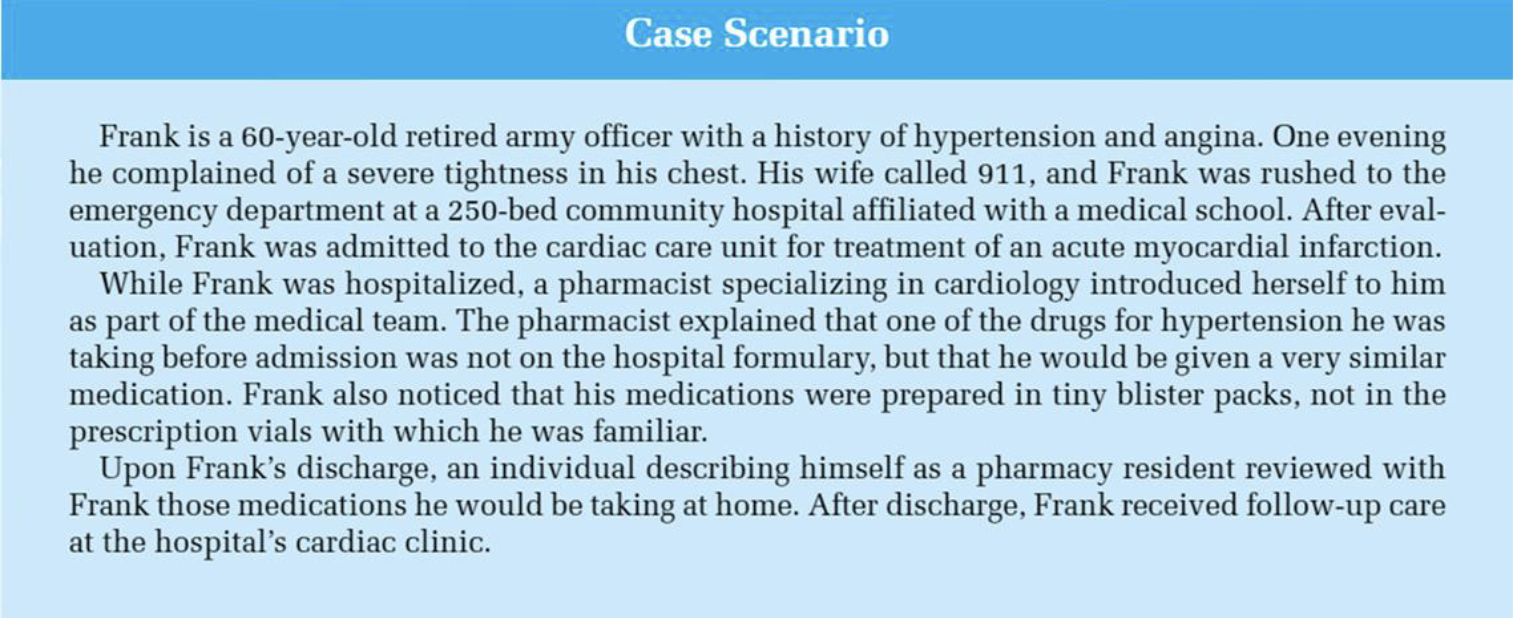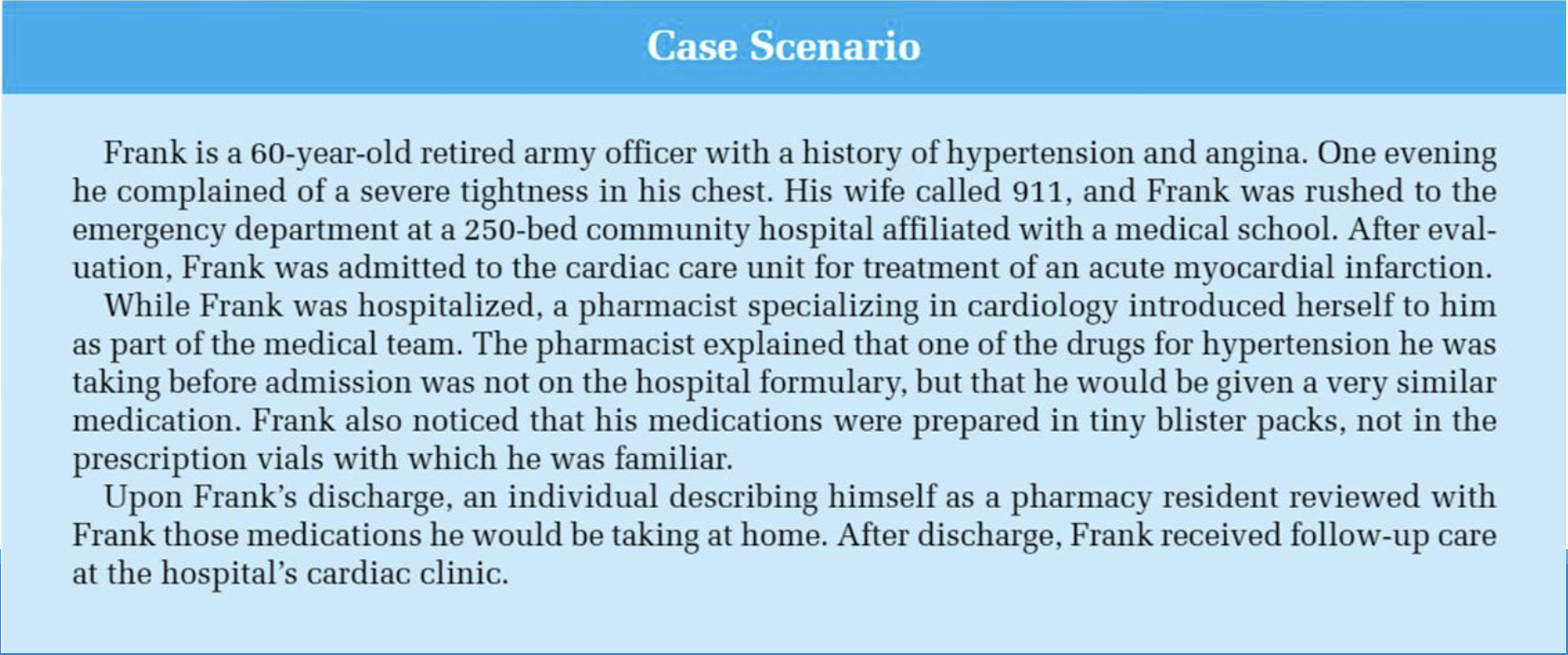Practice Problems (excluding practice quizzes)
1/16
There's no tags or description
Looks like no tags are added yet.
Name | Mastery | Learn | Test | Matching | Spaced |
|---|
No study sessions yet.
17 Terms
Mr. Palmer is a 43-year-old farmer who lives in a New England town in the 18th Century. Which statement below describes a health care practice Mr. Palmer is most likely to follow?
a) He would get vaccinated for smallpox.
b) His social class would entitle him to the best health care.
c) He would visit the hospital to receive care.
d) Mr. Palmer’s wife would be his 1st line of treatment.
d) Mr. Palmer’s wife would be his 1st line of treatment.
18th century refers to the 1700s, which is colonial time frame
What practice would use water therapy? What practice would use alcohol?
Water: Sectarian
Alcohol: Heroic
What was the most therapeutic intervention in the mid-20th century?
Antibiotics
Which of the following medical practices was used by allopathic doctors, during the Young Nation Years?
Botanical medicine
Heroic medicine
Hydropathy
Temperance
Heroic medicine
Young Nation Years refers to late 1700s/early 1800s

Which of the following terms does NOT describe the type of hospital Frank was admitted to?
a) Community
b) General
c) Long-term
d) Teaching
C) long term
Which type of facility is least likely to be ambulatory in nature?
Home infusion therapy
Adult day care services
Community health center
Psychiatric inpatient facility
Psychiatric inpatient facility
Ambulatory care is not inpatient
Which of the following correctly matches a paradox of the US health care system with an example from the movie Escape Fire?
A. Acupuncture as a technological advance developed in the US
B. Misuse of the emergency room by nonurgent patients
C. Primary doctors readily available across geographical areas
D. US ranked #5 on a list of developed countries and their life expectancy
B. Misuse of the emergency room by nonurgent patients
All of the following are examples of issues with United States’ health standards presented in the movie Escape Fire, EXCEPT:
A. Variability in access to care
B. Lack of coordination of care
C. High percentage of errors
D. High insurance premiums
D. High insurance premiums
Mr. Palmer is a 43-year-old farmer who lives in a rural New England town in the 19th Century. Which
statement below describes a health care practice Mr. Palmer is most likely to follow?
A. He would get vaccinated for smallpox
B. His social class would entitle him to the best health care
C. He would visit the dispensary to receive care
D. Mr. Palmer’s wife would be his 1st line of treatment
D. Mr. Palmer’s wife would be his 1st line of treatment
19th century → 1800s = Young nation yrs.
Mr. Palmer is a 43-year-old farmer who lives in a rural New England town in the 20th Century. Which
statement below describes a health care practice Mr. Palmer is most likely to follow?
A. He would get vaccinated for smallpox
B. His social class would entitle him to the best health care
C. He would visit the dispensary to receive care
D. Mr. Palmer’s wife would be his 1st line of treatment
A. He would get vaccinated for smallpox
Which of the following was related to quackery and
the Pure Food and Drug Act of 1906?
A. Botanical medicine
B. Heroic medicine
C. Folk medicine
D. Patent medicine
D. Patent medicine
Which of the following is NOT one of the four bodily humors addressed by the Humoral Theory?
A. Black bile
B. Blood
C. Urine
D. Yellow bile
C. Urine
Which of the following is an example of primary care?
A. Surgery at a medical center
B. Wastewater treatment
C. Walk-in clinic visit for heartburn
D. Radiation for cancer treatment
C. Walk-in clinic visit for heartburn
Kaiser Permanente offers a continuum of services via 420 clinics & 30 hospitals. This merger is an example of a:
A. dispersed model.
B. long-term care institution.
C. horizontal integration.
D. vertical integration.
D. vertical integration.
During which century did hospitals become
biomedical showcases?
A. 1700s
B. 1800s
C. 1900s
D. 2000s
C. 1900s
A Women’s Health Center, treating women age 40+ and their changing health care needs, is an example of:
A. hospital care.
B. ambulatory care.
C. long-Term care.
D. home-Health care.
B. ambulatory care.

Which of the following is NOT an example of
ambulatory care described in the case?
A. Calling 911
B. Visiting ED/ER
C. Cardiac unit
D. Cardiac clinic
C. Cardiac unit